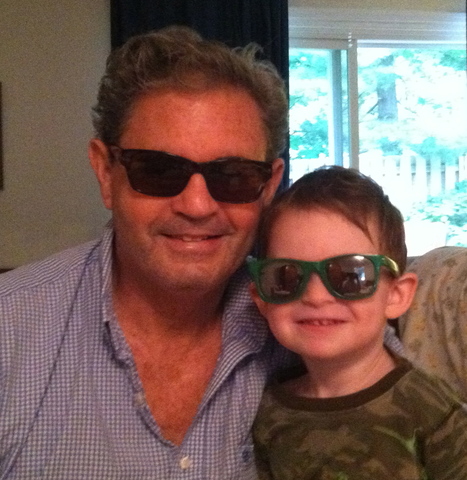
F. Scott Lax reads The New Yorker in his own special way
Our son, Finn Scott Lax, was sitting on my lap this afternoon. He was... a little bit fussy. He wanted... something. We weren't sure what. So I had this great idea. "I'll take this little yellow plastic donut," I said, "and act like it's something he maybe shouldn't have. Then he'll want it."
How proud I was of my idea. Surely, no parent had ever been so brilliant!
I placed the yellow plastic donut on the table, near where I was holding Finn on my lap, but far enough away to make him want it. Or so I thought.
Indeed he reached. His baby hand moved toward the yellow plastic donut. Then, in a blur, shot past it, and lit upon my new issue of The New Yorker. The New Yorker... my escape, my luxury, my pristine homage to the fading world of print and Old Journalism.
Above you will see what Finn (F. Scott) was able to do to The New Yorker in a matter of of seconds.
The New Yorker, meet the 21st Century F. Scott. At least he's enthusiastic. Read More
How proud I was of my idea. Surely, no parent had ever been so brilliant!
I placed the yellow plastic donut on the table, near where I was holding Finn on my lap, but far enough away to make him want it. Or so I thought.
Indeed he reached. His baby hand moved toward the yellow plastic donut. Then, in a blur, shot past it, and lit upon my new issue of The New Yorker. The New Yorker... my escape, my luxury, my pristine homage to the fading world of print and Old Journalism.
Above you will see what Finn (F. Scott) was able to do to The New Yorker in a matter of of seconds.
The New Yorker, meet the 21st Century F. Scott. At least he's enthusiastic. Read More